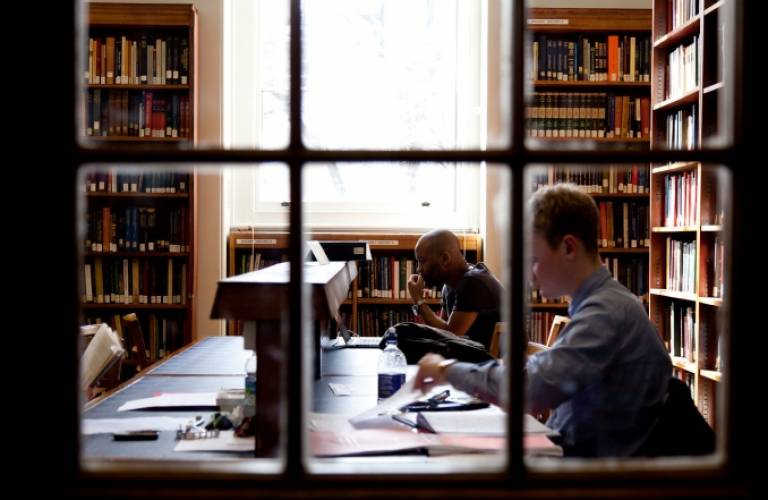Facet analysis and its influence on the major systems of library classification

14 December 2014
Several decades of research at UCL developing a facet-based classification system for knowledge organisation has led to changes in the approaches taken by major library classification systems, including the Dewey Decimal Classification (used in over 200,000 libraries) and the Universal Decimal Classification (over 150,000 libraries).
Most existing library classification systems were developed before the computer age and lack a sound theoretical basis. They are also vulnerable to cultural bias; for example, traditional library classifications for the Religion class may devote the vast majority of the class to Christianity, with all aspects of all other religions sharing a small sub-set of this class.
Facet analysis offers solutions to these issues, enabling a more accurate representation of content, and easing online search and discovery. Facet analysis was devised by UCL graduate SR Ranganathan in the 1930s, and taken up in the 1950s by the UK Classification Research Group. Recent research in this field has been led by Professor Ia McIlwaine and subsequently Professor Vanda Broughton (both UCL Information Studies).
Facet analysis builds classification from 'the bottom up' on the basis of a detailed examination of the concepts in a given discipline or subject field. Concepts are assigned to a series of categories (or facets) which are largely functional, or linguistic in nature (entities, parts, materials, processes, operations, products, agents). Relationships between concepts in a facet, and between the facets themselves, are established, and the rules for combination are derived from the structure, within the conventions and needs of the particular discipline. UCL was the institutional lead for the second edition of the Bliss Bibliographic Classification (BC2), which applied facet analysis, with UCL researchers contributing new terminologies for specific subject fields including Religion, the Fine Arts and Chemistry.
In the 1990s the Universal Decimal Classification (UDC) agreed to make BC2 the basis of all new revisions of the UDC, using its terminologies and adopting its faceted structure within the UDC format. In 1997, Professor Broughton joined the Editorial Team, presenting the principles of facet analysis to editorial workshops, helping to establish editorial policy and practice, and working on the conversion of BC2 classes to UDC format. She also developed several new auxiliary schedules, which assign common facets across classes.
In 2000, Professor Broughton created an entirely new Religion classification, based on her work on BC2. This was incorporated into the 2005 edition of UDC and applied to all accessions in religion since. It also formed the precedent for editors working on other classes such as Philosophy, Medicine and Mathematics. The UDC is used in over 150,000 libraries in around 130 countries, and is widely used for academic and scientific collections, particularly in eastern Europe.
" Facet analysis has proved highly influential for organizing and discovering subject information; it has huge potential for the Semantic Web, and is already being explored for Web 3.0. - Professor Vanda Broughton
The Dewey Decimal Classification (DDC) has been translated into more than 30 languages and serves library users in over 200,000 libraries in 135 countries, making it the world's most widely used library classification system. It was consistently criticised for its Class 200, Religion, in which Christianity and the Bible occupied numbers 220-289, with all other religions sharing 290-299. In 2006, following the publication of the new UDC Class 2 Religion, the then-Editor of the DDC proposed collaboration with Professor McIlwaine for a revision incorporating many features of Professor Broughton's UDC schedule into the 22nd edition of Dewey.
When released in 2011 the top structure of the new DDC class mirrored almost exactly the UDC structure, and offered an optional chronological structure (2012) for classifying religions, based on the UDC. Between its release in 2012 and 31 July 2013, 178,000 books in the field of religion were added to the WorldCat database maintained by the Online Computer Library Centre (OCLC), which also publishes and maintains Dewey; the majority will have received a new DDC number using this system.
Research was supported by the Universal Decimal Classification Consortium and the Bliss Classification Association.
 Close
Close

